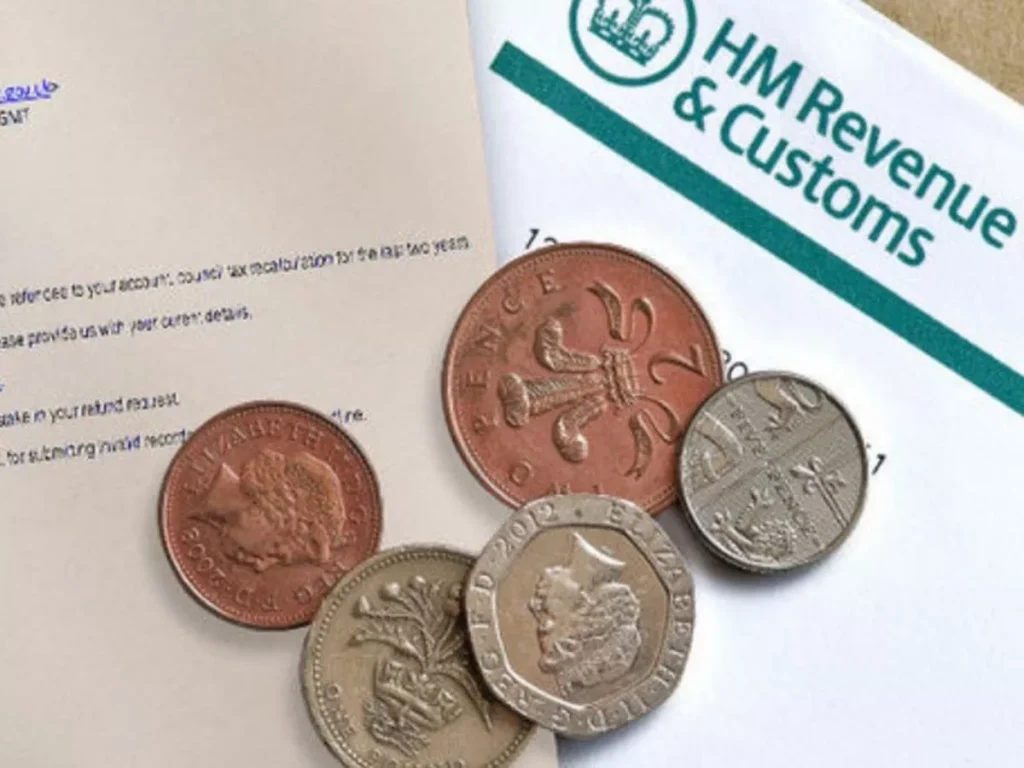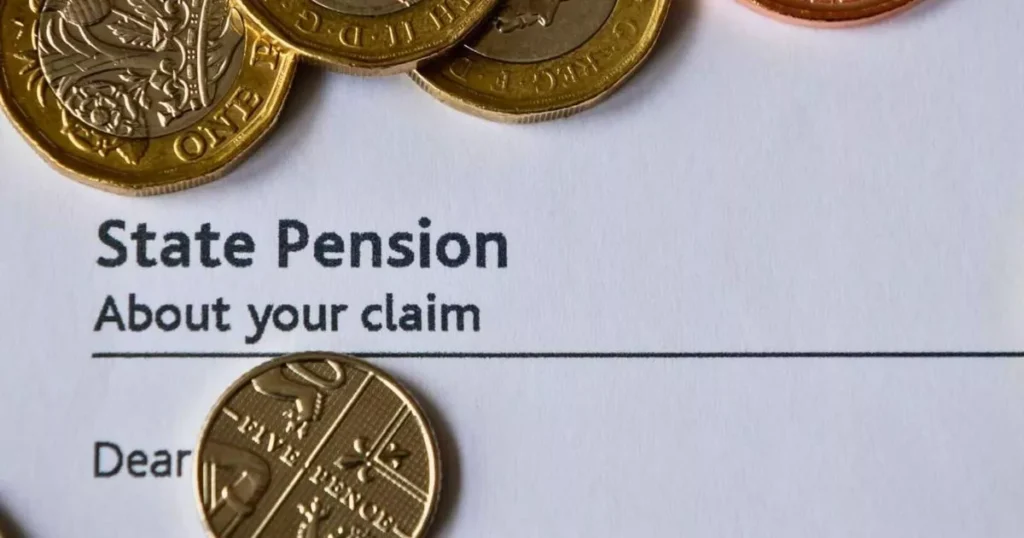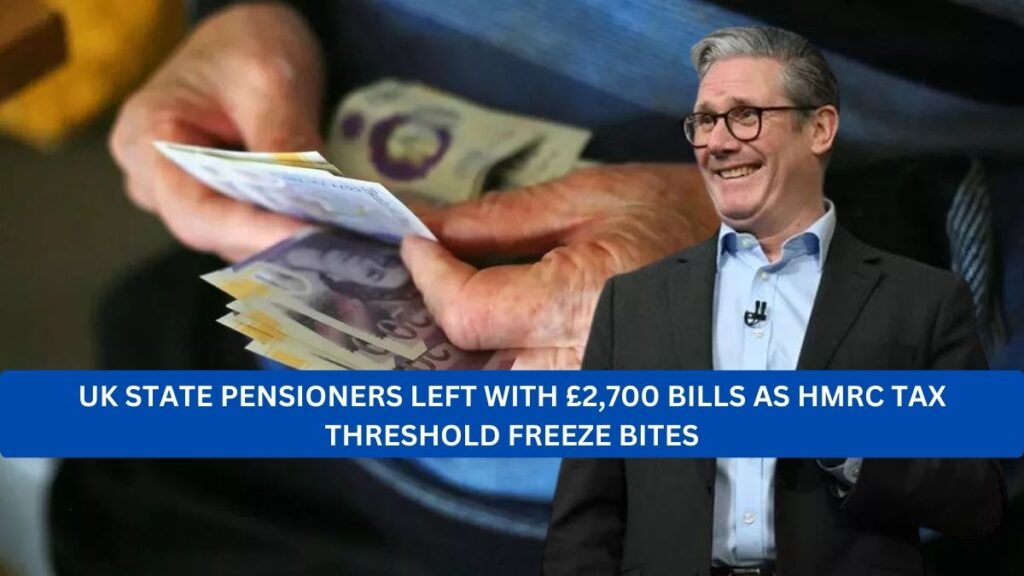Thousands of UK state pensioners are facing unexpected tax bills of up to £2,700 each due to a combination of frozen income tax thresholds and increasing pension payments, according to recent reports. The stealth tax effect, caused by fiscal drag, is drawing more retirees into the tax net, prompting confusion and financial strain among elderly citizens who believed their income would remain tax-free.
Why Are Pensioners Paying More?
The primary reason behind this surge in tax liability is the government’s decision to freeze the Personal Allowance — the amount of income a person can earn before paying income tax — at £12,570. This threshold has been unchanged since 2021 and will remain frozen until at least April 2028, according to the UK government’s policy documents.

Simultaneously, state pension payments are increasing due to the Triple Lock mechanism, which ensures annual increases in line with inflation, wage growth, or a minimum of 2.5% — whichever is highest. In April 2024, pensions rose by 8.5%, pushing many pensioners’ incomes closer to or over the taxable threshold.
How Much Could Pensioners Owe?
According to data from the House of Commons Library, a significant portion of the state pensioner population will become liable for income tax. The number of pensioners paying income tax is expected to almost double from 4.9 million in 2010 to 9.3 million by 2027-28.
Some individuals have been hit with one-time tax demands of £2,700 due to incorrect tax codes or failure to notify HMRC about additional income sources. Others are seeing deductions from their pension income, with many unaware they had crossed the tax threshold.
How Fiscal Drag Works
Fiscal drag occurs when tax thresholds do not rise with inflation or wage/pension growth, causing more people to pay tax or to pay tax at a higher rate. This phenomenon has become especially pronounced during a period of high inflation and stagnant tax allowances.
Although not a new concept, fiscal drag is increasingly being used as a stealth tax—a method for the government to increase tax revenues without changing tax rates. For many pensioners on fixed incomes, this leads to surprise tax bills and reduced disposable income.
Real-Life Impact on Pensioners
Many retirees assumed their income would remain below the taxable limit and are now discovering they owe back taxes due to automatic HMRC recalculations. Others are struggling to get clarification or help from HMRC, which has come under criticism for reducing phone line availability and customer service (The Times).
A video report from MoneyMagpie titled “Secret Retirement Tax As They Must Pay £2700 Extra” outlines the concerns of affected pensioners and discusses ways to challenge erroneous tax demands.
What Can Pensioners Do to Protect Themselves?

1. Check Your Tax Code
Pensioners should review their PAYE tax code to ensure it reflects accurate information. Errors in tax codes can lead to overpayment or underpayment of taxes.
2. Report Additional Income
If you have other sources of income — such as part-time work, private pensions, or savings — you are required to declare them. Failure to report additional income may lead to penalties and backdated tax bills.
3. Claim Available Allowances
Certain allowances, such as the Marriage Allowance or Blind Person’s Allowance, can reduce your tax liability. Visit HMRC’s tax relief section for more information.
4. Seek Professional Advice
If you receive a demand for back taxes or think you’ve been incorrectly taxed, consider contacting a tax adviser or citizen’s advice service. You can also lodge an appeal through HMRC’s complaints process.
5. Contact HMRC
Although phone service has been scaled back, you can still contact HMRC via their contact page. Be sure to have your National Insurance number and recent correspondence at hand.
This article has been carefully fact-checked by our editorial team to ensure accuracy and eliminate any misleading information. We are committed to maintaining the highest standards of integrity in our content.

Himanshu Sharma writes for Weekend Spy, focusing on recruitment, government schemes, and current affairs. He is dedicated to making complex information accessible to readers.
Himanshu enjoys playing chess, hiking, and trying new recipes, always seeking ways to combine his love for writing with his passion for exploration. Connect with Drop him an email at [email protected].







